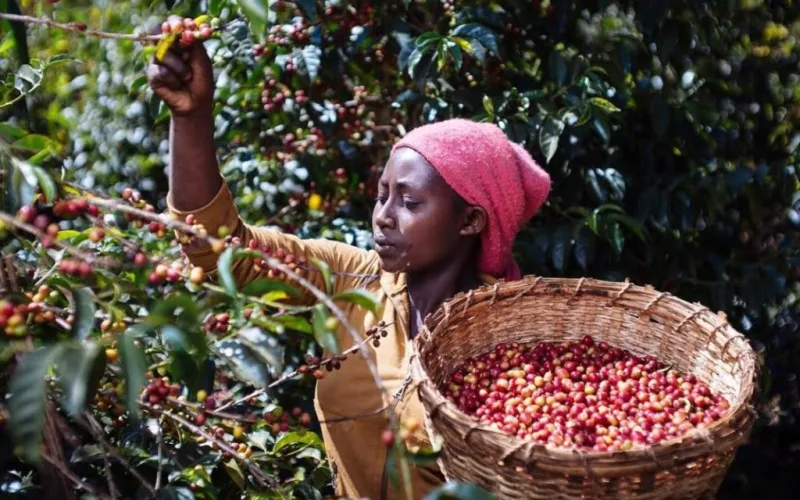Five million Ethiopian coffee farmers are facing existential threats due to a recent EU law.
The European Union passed legislation two weeks ago aimed at barring the entry and sale of products deemed environmentally harmful within its member countries.
The law, crafted to combat global warming and prevent deforestation, targets products linked to forest depletion, thereby promoting environmental preservation efforts.
Of particular concern is the impact of this law on Ethiopia, a major exporter of forest coffee to European and global markets.
The Ethiopian Coffee Association has voiced apprehension, warning that failure to accommodate Ethiopia’s unique circumstances under the new European law could plunge millions into poverty.
Hussein Ambo (Dr.), the president of the association, emphasized the symbiotic relationship between Ethiopian coffee and its forest habitat, stressing, “Ethiopian coffee is found in the forest; coffee does not taste good without the forest.”
He underscored Ethiopia’s stringent forest protection laws, noting that deforestation is punishable by up to 15 years in prison.
Ambo argued against accusations of deforestation, asserting that coffee farming in Ethiopia coexists with forest preservation efforts.
Ambo called for the European Union to levy a carbon fee on Ethiopia rather than accusing the country of deforestation.
He highlighted the integral connection between coffee and forests in Ethiopia and urged the EU to consider the nuances of the situation.
The president expressed concern that failure to communicate Ethiopia’s plight to European authorities could harm millions of Ethiopians, jeopardizing their livelihoods.
Losing European coffee customers could lead to the abandonment of coffee plantations, exacerbating poverty and driving up global coffee prices.
Ethiopia heavily relies on coffee exports, with 30 percent of its coffee shipments destined for Europe, particularly Germany and Sweden.
Although other regions, such as North America and Asia, also importing Ethiopian coffee, these markets are less stable and reliable.
The Ethiopian Coffee Association is spearheading efforts to engage with various government and business entities to lobby the European Union for understanding and flexibility regarding Ethiopia’s circumstances.
Additionally, plans are underway to implement a forestry package program aimed at benefiting coffee farmers and promoting sustainable practices.
Ambo emphasized Ethiopia’s commitment to enhancing coffee productivity and securing foreign buyers, allocating over 2 billion birr for environmental protection initiatives to mitigate the impact of climate change on coffee-producing regions.
Despite ambitious export targets, Ethiopia’s coffee earnings have fallen short, signaling potential economic challenges ahead. With a significant portion of the population reliant on coffee-related activities, the stakes are high for Ethiopia’s coffee industry.
Germany, Saudi Arabia, Japan, the United States, and South Korea are among the top importers of Ethiopian coffee, with China emerging as an increasingly important market in recent years.
These dynamics underscore the significance of preserving Ethiopia’s coffee industry amid evolving global trade patterns.
